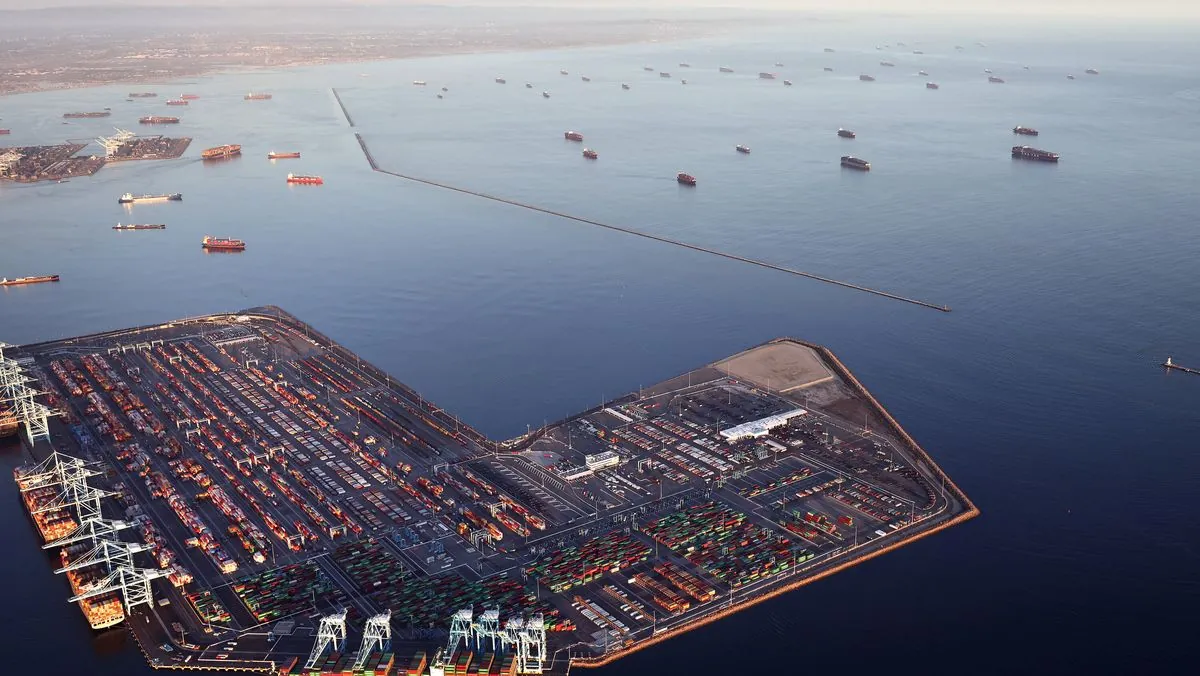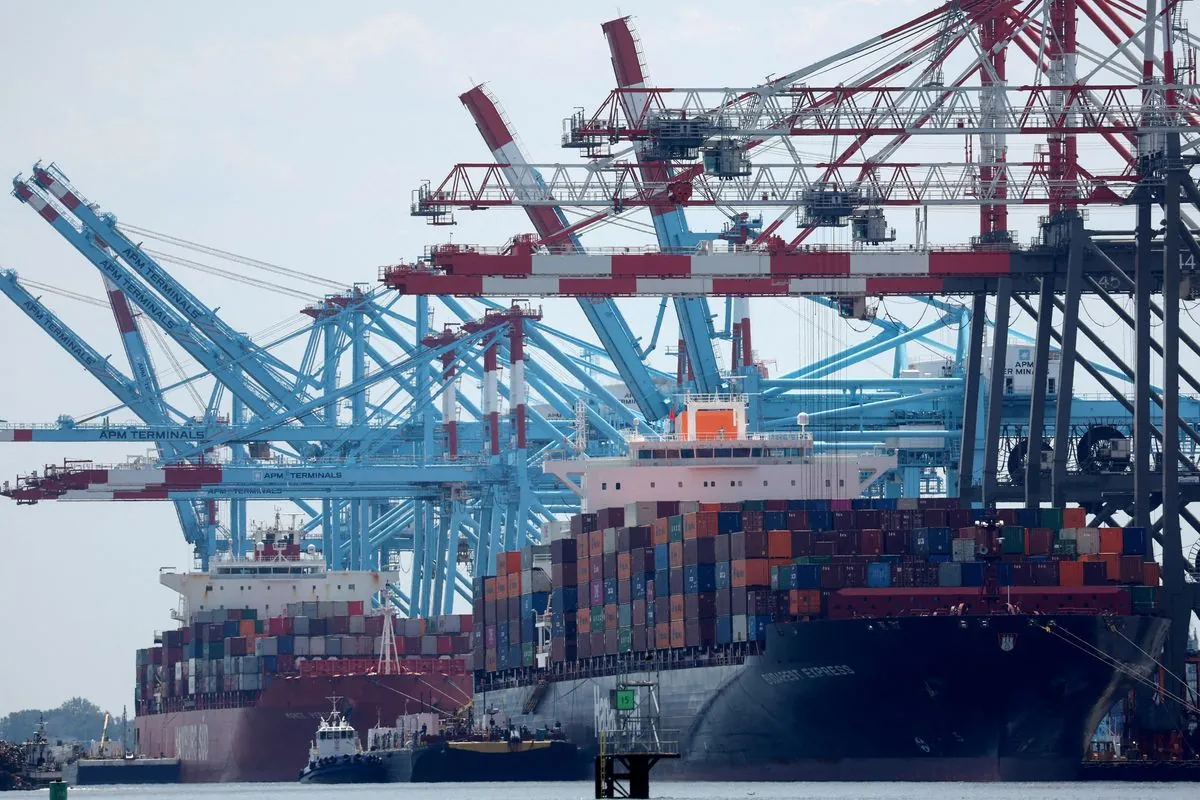US Port Strike Threatens Beef Supply Chain and Food Imports
Dockworkers' strike at East Coast and Gulf ports disrupts beef imports, seafood shipments, and chicken exports. Importers stocked up pre-strike, but prolonged action could lead to shortages and price hikes.

A labor dispute at major US ports is causing significant disruptions to the food supply chain, particularly affecting beef imports. The strike, involving dockworkers at East Coast and Gulf Coast ports, has halted the loading and unloading of various goods, including essential food products.
Dan Sorbello, principal for Sorbello Refrigerated Services, stated, "We've got ourselves maybe a week's worth of lifeline." This sentiment reflects the preparations made by many importers who increased their stock ahead of the anticipated strike. The International Longshoremen's Association, founded in 1892, represents the striking workers at these crucial ports.
The beef industry is particularly vulnerable to this disruption. The US, as the world's largest beef importer, has been increasingly reliant on foreign supplies due to domestic shortages. This dependency has grown as the US cattle inventory, which peaked in 1975 at 132 million head, has dwindled to its lowest level in decades. Factors such as severe drought and high grain prices have prompted ranchers to reduce their herds significantly.

As a result of these domestic challenges, beef imports have surged. Through July 2024, imports from Australia, the world's second-largest beef exporter, jumped by 72%. The US has also increased imports from New Zealand and Brazil, with the latter being the world's largest beef exporter.
The average American consumes about 58 pounds of beef per year, highlighting the importance of maintaining a stable supply. Ground beef, which accounts for about 62% of all beef sold in US retail, reached a record high price of $5.58 per pound in August 2024. This price trend could worsen if the strike persists.
"All of a sudden, fast food chains that have been relying on much more reasonably priced lean meat from overseas would be forced to turn to domestic alternatives."
The strike's impact extends beyond beef. Seafood importers like PanaPesca USA LLC have also been affected. The US imports 70-85% of its seafood consumption, with an annual import value exceeding $22 billion. Popular items like squid and shellfish are now stuck on anchored ships.
The poultry industry is facing challenges too. The US chicken industry, which exports about 18% of its production, relies on ports like Savannah to ship products to countries such as Angola and Cuba. The Port of Savannah, the fourth-busiest container port in the US, is crucial for these exports.
Jason Miller, interim chair of Michigan State University's department of supply chain management, described the situation as "a nightmare" from a supply chain perspective. The strike has already caused over 50 container ships to anchor or loiter off the coast, a significant increase from just three before the strike began.
If the strike continues beyond a week, it could lead to food shortages, price inflation, or both. This situation is particularly concerning for fast food chains, with McDonald's being the largest purchaser of beef in the US. The first hamburger chain in the US, White Castle, founded in 1921, along with other major chains, may face increased costs and supply challenges.
The US beef industry, which contributes about $67 billion annually to the economy, is at a critical juncture. With the US beef cattle herd cycle typically lasting 10-12 years, the current shortage and import dependence highlight the long-term challenges facing the sector.
As the strike continues, its ripple effects are likely to be felt across the entire food supply chain, potentially impacting consumers' access to various products and their prices in the coming weeks.



































